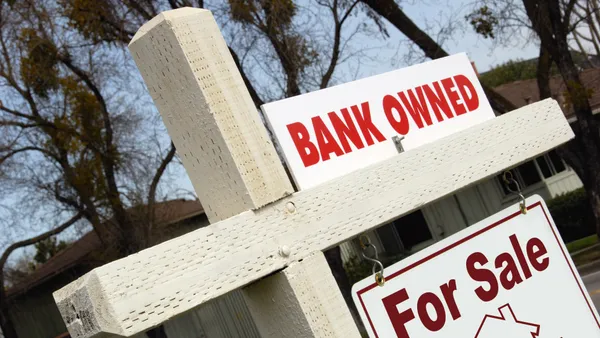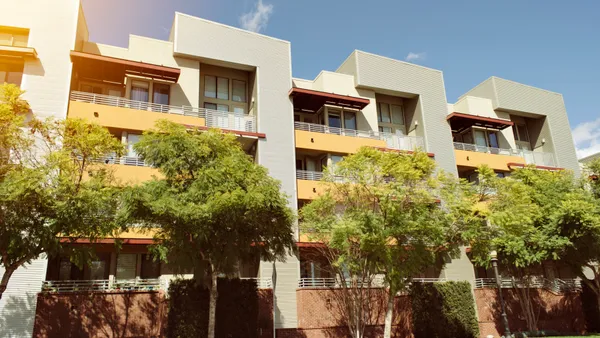The volatile capital market situation has pushed some lenders out of the game for now, forcing buyers to look harder for loans.
But even if multifamily borrowers can secure loans, they need to put more money into their deals. Interest rate increases have changed the game for lenders. Some, like many debt funds, have left the space. Others are making buyers bring in more money. Either way, borrowing has gotten a lot more expensive.
“Deals are getting retraded — the lender will come back and say: “We have to lower the loan to value [LTV] and lower the loan proceeds,” said George Goyal, founding partner at Houston-based Three Pillars Capital Group. “The buyer needs more equity.”
With LTV ratios — the percentage of the loan banks are lending -– moving lower, borrowers need to bring more money to the table. Other things, like the effort required to close a loan, are also taking longer. With that comes increased costs. But despite these increased obstacles, multifamily executives are still getting deals done.
LTVs move higher
With fewer lenders in the market, buyers of stabilized properties need to find new sources of debt. And, in many cases, piecing those loans together is getting more expensive.
“With debt funds pulling back, warehouse lines, margin lines and repo lines were closed,” said David Fletcher, managing director and head of acquisitions at Excelsa — the Bethesda, Maryland-based U.S. real estate investment arm of Excelsa Holdings. “That investor, who was using debt fund capital to get to an 80% LTV in a sub 4% cap rate environment — or sub 3% cap rate in certain cases — cannot secure that financing now.”
Underwriting for new construction is also getting more challenging. Borrowing for a development project is inherently riskier than for a stabilized asset. To compensate for that risk, developers must put more money into their deals. Now that rates are rising, they’re being asked to contribute even more.
William Colgan, managing partner of Bloomfield, New Jersey-based developer CHA Partners, said his company traditionally did around a 65% to 70% loan-to-cost on its deals. “With the increasing rate environment, the amount of money that banks want in interest reserve accounts, when you’re underwriting projects, has increased over the past few months,” he told Multifamily Dive.
Colgan isn’t alone. Ernesto Lopes, the president and CEO of Miami-based developer Resia (formerly known as AHS Residential), said banks used to provide 70% LTV. Now, that number has fallen to 60%.
“They are also being more careful,” he told Multifamily Dive. “They were accepting, you know, crazy rent increases on the performance. They'll be more conservative on that side. And the cost as well.”
Other costs
Banks are also making sure that they have the proper amount of funds in their interest reserve account, according to Colgan. “They’re all anticipating further increases over the next couple of years,” he said. “They just want to make sure proper funds are in place.”
Even after getting lenders on board, the closing process is taking longer because loan numbers move. To get a loan to the finish line, employees may need to work more hours. And time is money.
“It will just take weeks of going to the investment committee and then back [to the lender],” Playa Vista, California-based apartment owner DB Capital CEO Brennen Degner told Multifamily Dive. “Then something changes. You go to the investment committee and back again. The process is incredibly slow compared to what we were seeing before.”
But even with higher costs, Ed Garahan, CEO of Dallas-based developer Carbon Cos. says development deals are still penciling out.
“We're anticipating that interest rates will be between 5% and 6%,” Garahan told Multifamily Dive. “The deals work economically if you solve to a 5.5% or 6% interest rate and there's a differential on the cap rates. Are cap rates going to go up? Yes. But how much are they going to go up? If you’re in at a cash-on-cash return of 6.5%, is coming out of it at a 5% cap worth it? Yes, it is.”
Click here to sign up to receive multifamily and apartment news like this article in your inbox every weekday











